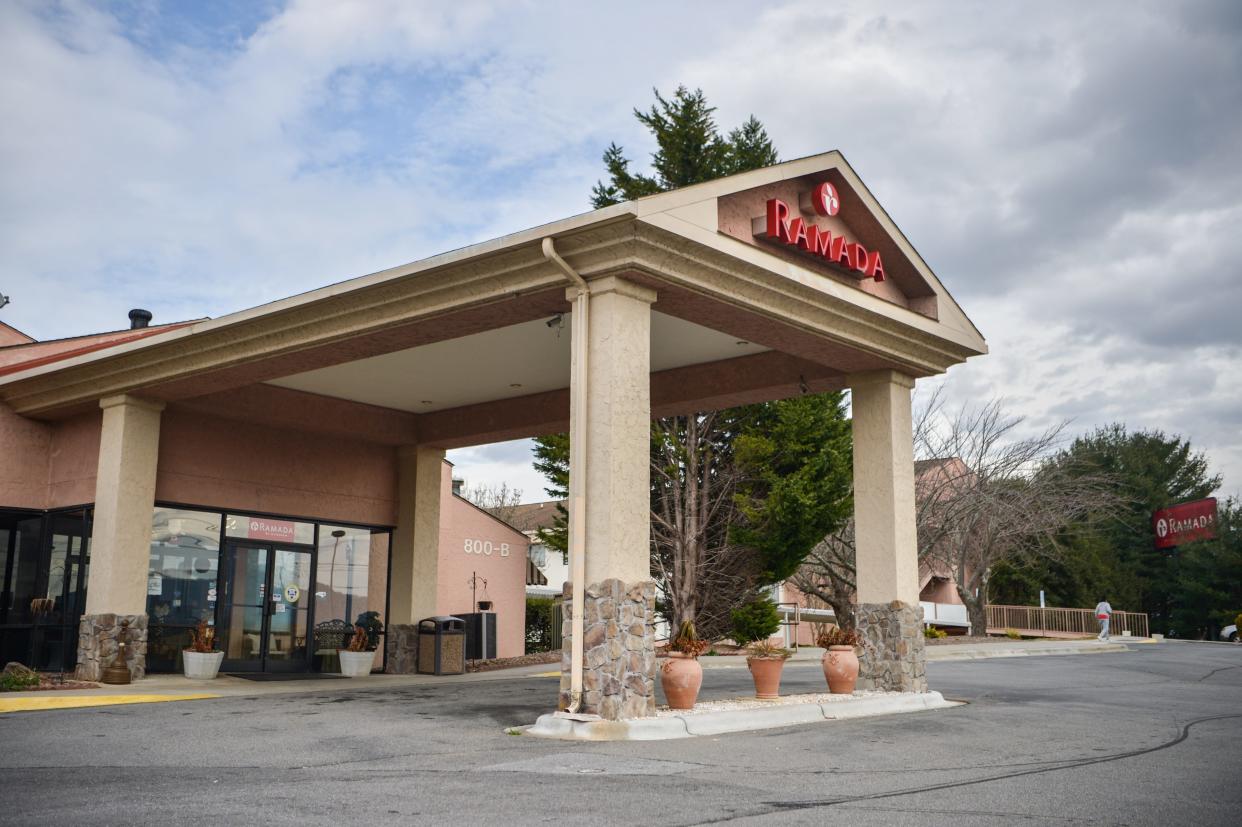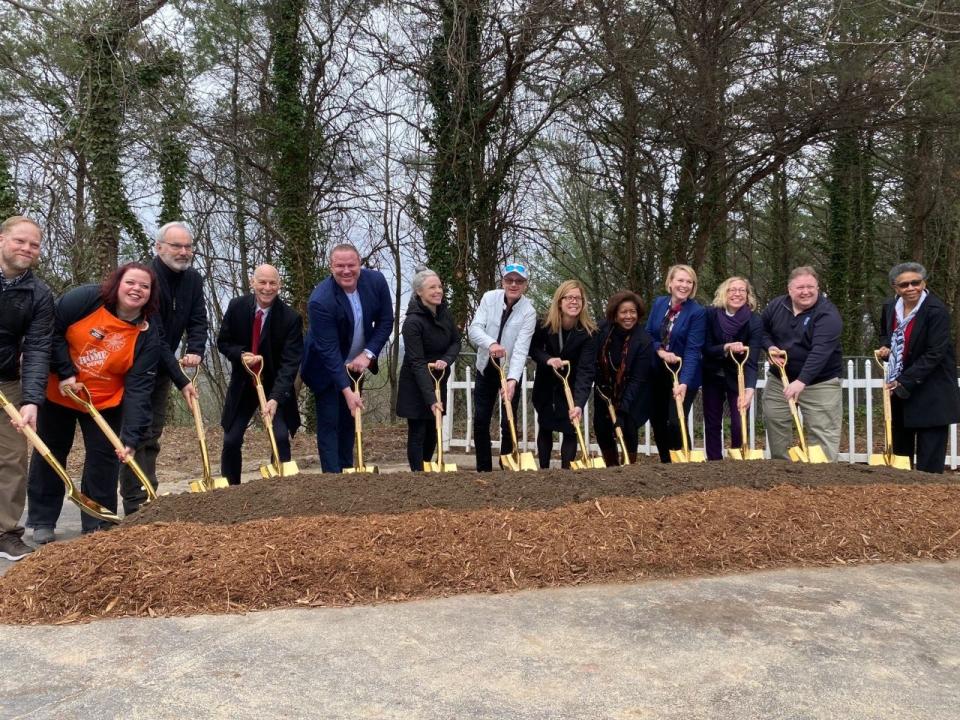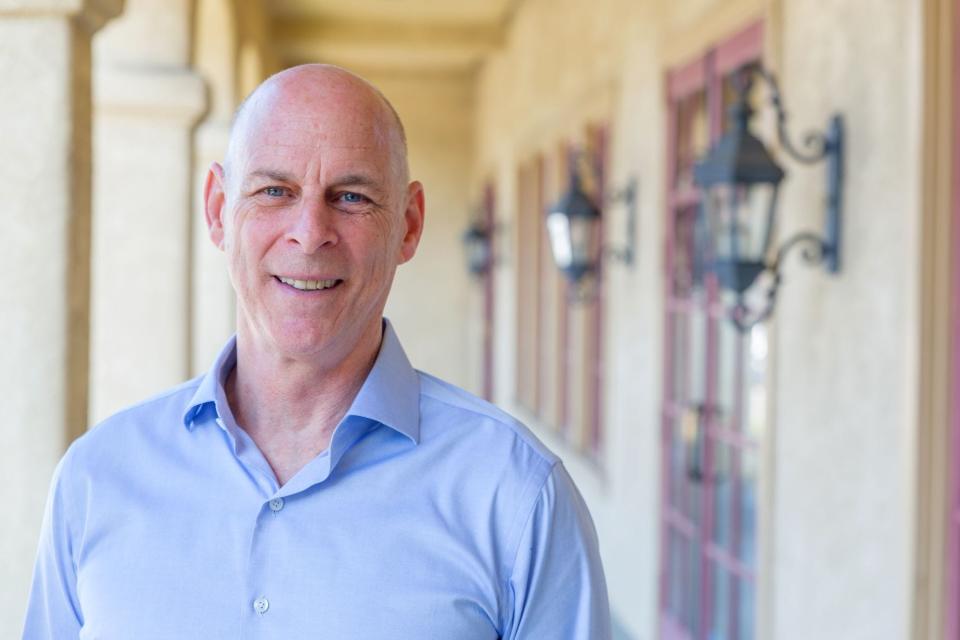Answer Woman: When will permanent supportive housing open in Asheville's Ramada Inn?

ASHEVILLE - Today's burning question is about the planned conversion of the Ramada Inn into permanent supportive housing, and if the project is still on track. Got a question for Answer Man or Answer Woman? Email Executive Editor Karen Chávez at KChavez@citizentimes.com and your question could appear in an upcoming column.
Question: What is happening with the Ramada Inn project in East Asheville. It does not look like any work is going on and the area around it is grown up with weeds. When will it open?
Answer: After Homeward Bound opened its own permanent supportive housing project in mid-September, an 87-room hotel conversion in the former Days Inn off Tunnel Road, it's natural to wonder after the other incoming project in Asheville: the transformation of the Ramada Inn, slated to bring 113 more units to East Asheville.
Our reader wasn't the only person to notice the weeds — the city assured me that it had been taken care of.
"Extensive landscaping" was carried out over the Sept. 16 weekend to get weed overgrowth in check, said city spokesperson Kim Miller.
But it's not the city's project, anymore, though involvement is ongoing in the city's role as the lead agency for the area's Continuum of Care. In December 2021, the city made a quick pivot away from the purchase of East Asheville's Ramada Inn, which it intended to transform into a high-access homeless shelter, and authorized the assignment of its contract to purchase the property to Shangri-La.
Shangri-La Industries, a California-based, for-profit developer, is pursuing a permanent supportive housing project in partnership with another California-based company and nonprofit, Step Up, Inc.
The project is still underway, Tod Lipka, president and CEO of Step Up, told the Citizen Times in September. They've just secured a second contractor, he said, after the first "didn't work out," and are projecting February completion of the project, with move-in soon after.
He acknowledged there had been some delays, the project was initially targeting an August 2023 completion, but Lipka said a February occupancy date would only be a little over a year after its December 2022 groundbreaking.

What is permanent supportive housing?
Permanent supportive housing is an approach that provides permanent housing solutions and onsite service support for its residents. The model targets people who are chronically homeless, meaning those who have experienced homelessness for at least a year, or repeatedly, while struggling with a disabling condition, such as a serious mental illness, substance use disorder or physical disability.
Of the 113 units, 50 will be dedicated to homeless veterans.
Shangri-La, the project's developer, is overseeing construction. Step Up will be responsible for lease-up, supportive services and property management. The city will provide $1.5 million to fund the first three years of supportive services for the project.

Step Up is a 40-year-old nonprofit started in Santa Monica, California, Lipka said. They've opened 20 permanent supportive housing projects nationwide, with another 20 in development, Asheville included.
Across all its projects, Step Up will place 1,000 people into housing this year, he said. The retention rate for its projects, those still in housing a year later, is 97%.
Housing retention is the ultimate goal.
“Once they are in housing, they don’t have to spend all their energy surviving. And suddenly they have room in their life for more," Lipka said of residents of permanent supportive housing projects, like Ramada. “These are the individuals who are the source of 911 calls, they’re ... clogging up the (Emergency Room), the courts, the jails.”
In the city's latest point in time count, an annual single-night tally of homelessness in Asheville and Buncombe County, 572 people were counted, 171 of which were experiencing unsheltered homelessness.
Lipka said Step Up will staff five or six full-time case managers onsite, with other staff there to handle property management. The major goals are two-fold: Assisting with life skills and activities for daily living, and the coordination of services with outside entities and organizations.
This means connections to mental and physical health care, benefits establishment, volunteer work, classes and employment.
“We know that living on the street has a relationship to higher mortality rates. People living on the street die younger, we know that. They stabilize in housing," Lipka said. "There is a clear benefit to the individuals living on the streets of Asheville, and there is a clear benefit to the community of Asheville."
How will future Ramada residents be selected?
The city's initial plans to open a high-access shelter in the space were deterred in part because of outcry from the hotel's neighbors. Lipka said there is a "fundamental difference" between a shelter model and permanent supportive housing, and that the project team has met with nearby business owners and neighbors to hear concerns.
“We’ve done this all across the country, and we’ve done it in destination communities, just like Asheville," Lipka said.
“These projects really become assets in the local community, and I think our neighbors understood that when they understood our model, what we do and how that’s different from what was there before in terms of the winter shelter.”
Step Up will work with the local Veterans Affairs system and other area service providers to identify those who need housing the most. Selection will be done based on existing network referrals, meaning a future resident would need to already be in the system, or connected into the system by a current service provider.
Emily Ball, the city's Homeless Strategy Division manager, said members of her team who facilitate coordinated entry, a centralized assessment process that supplements a community-wide system, will work with these providers, as well, to identify residents.
More: From a Days Inn to a 'forever home': Compass Point offers safety and home to the homeless
More: Asheville council considers multimillion dollar Thomas Wolfe Auditorium renovations
Sarah Honosky is the city government reporter for the Asheville Citizen Times, part of the USA TODAY Network. News Tips? Email shonosky@citizentimes.com or message on Twitter at @slhonosky. Please support local, daily journalism with a subscription to the Citizen Times.
This article originally appeared on Asheville Citizen Times: Answer Woman: Is Asheville's Ramada still being converted to housing?

